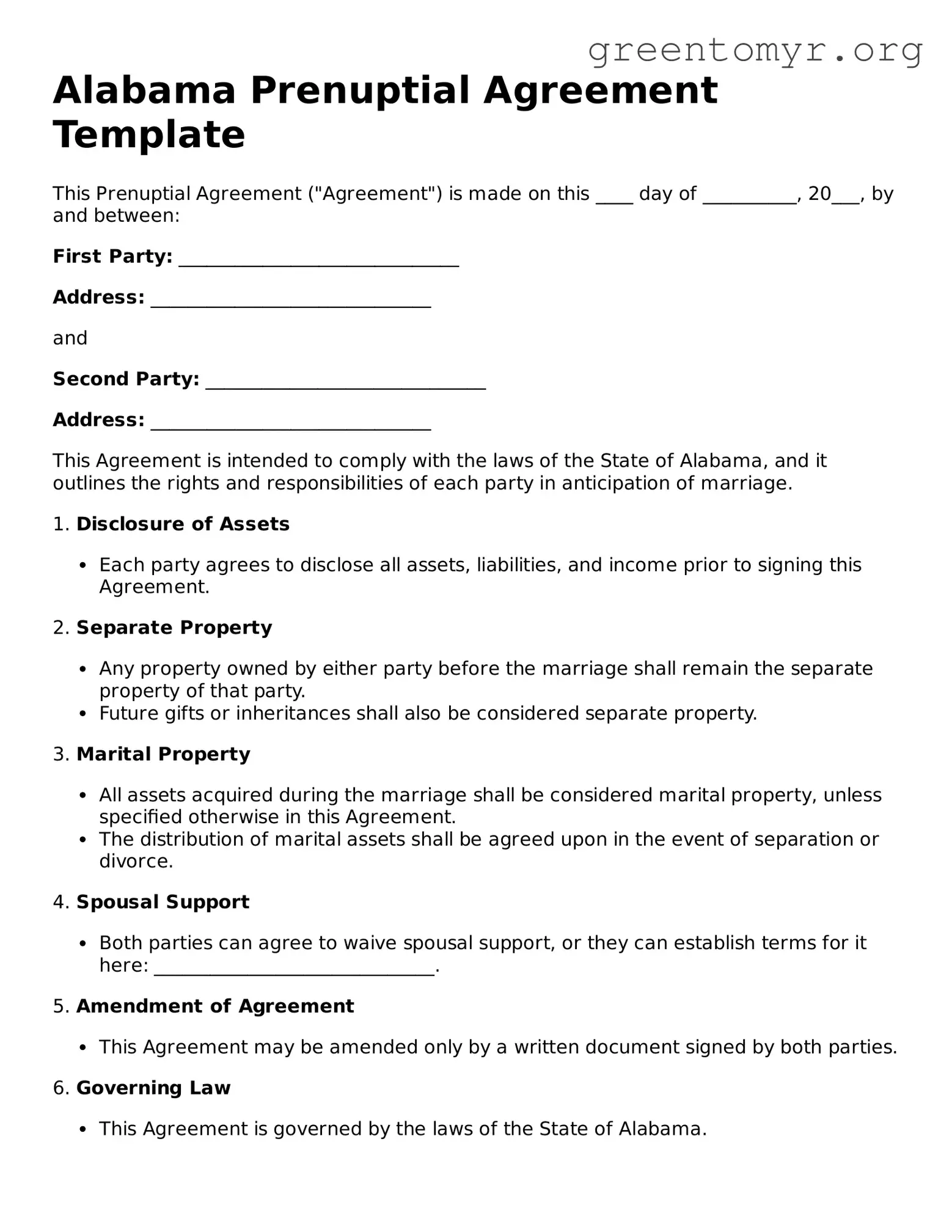Alabama Prenuptial Agreement Template
This Prenuptial Agreement ("Agreement") is made on this ____ day of __________, 20___, by and between:
First Party: ______________________________
Address: ______________________________
and
Second Party: ______________________________
Address: ______________________________
This Agreement is intended to comply with the laws of the State of Alabama, and it outlines the rights and responsibilities of each party in anticipation of marriage.
1. Disclosure of Assets
- Each party agrees to disclose all assets, liabilities, and income prior to signing this Agreement.
2. Separate Property
- Any property owned by either party before the marriage shall remain the separate property of that party.
- Future gifts or inheritances shall also be considered separate property.
3. Marital Property
- All assets acquired during the marriage shall be considered marital property, unless specified otherwise in this Agreement.
- The distribution of marital assets shall be agreed upon in the event of separation or divorce.
4. Spousal Support
- Both parties can agree to waive spousal support, or they can establish terms for it here: ______________________________.
5. Amendment of Agreement
- This Agreement may be amended only by a written document signed by both parties.
6. Governing Law
- This Agreement is governed by the laws of the State of Alabama.
IN WITNESS WHEREOF, the parties hereto have executed this Prenuptial Agreement as of the date first above written:
First Party Signature: ____________________ Date: ___________
Second Party Signature: ___________________ Date: ___________
Notary Public: __________________________
My Commission Expires: __________________
